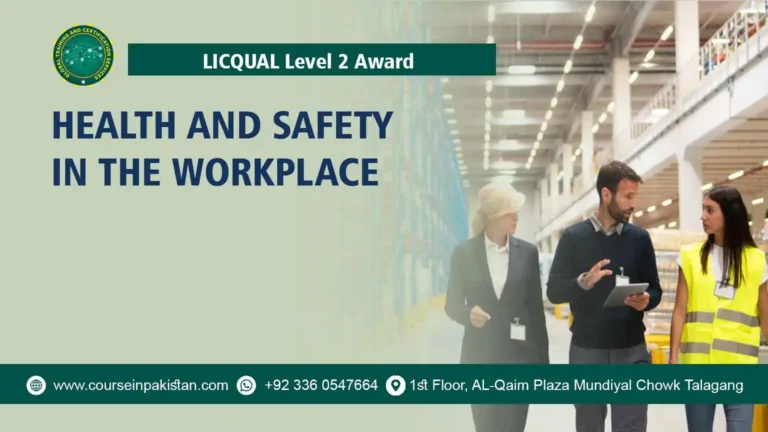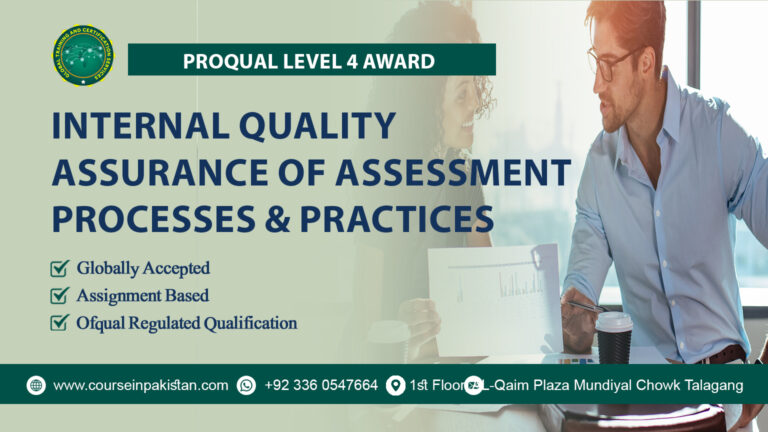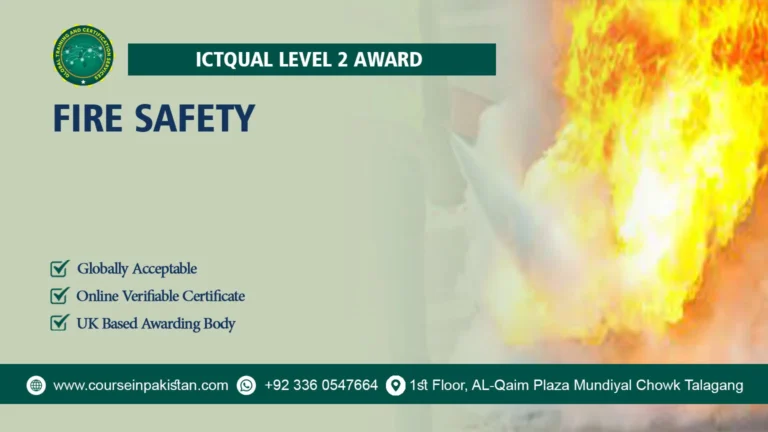
The ProQual Level 2 Award in Machinery Safety for Maintenance Engineers is a vital qualification for those working in maintenance engineering roles, particularly in industries that involve machinery and heavy equipment. This qualification provides essential knowledge and practical skills related to the safe operation, maintenance, and repair of machinery, ensuring that maintenance engineers can contribute to a safer and more efficient workplace.
In this blog post, we will explore everything you need to know about this qualification, including course details, benefits, learning outcomes, and much more.
The ProQual Level 2 Award in Machinery Safety for Maintenance Engineers is designed to provide learners with a foundational understanding of machinery safety principles. Machinery-related hazards can be found in many industries, such as manufacturing, construction, and oil & gas, and maintenance engineers play a crucial role in managing these risks.
This qualification focuses on essential safety regulations, risk assessments, and control measures that maintenance engineers must understand and apply when working with machinery. By completing this course, learners will gain the knowledge necessary to safely maintain, repair, and troubleshoot machinery while adhering to health and safety standards.
Course Overview
The ProQual Level 2 Award in Machinery Safety for Maintenance Engineers covers a range of important topics related to machinery safety. These include:
- Health and Safety Legislation: An overview of the key regulations and safety standards that govern machinery safety in various industries. This section will provide learners with a solid understanding of the legal requirements for maintaining machinery safely.
- Types of Machinery and Associated Risks: Learners will explore the different types of machinery they are likely to encounter in their work and the associated risks. This includes understanding common hazards like moving parts, electrical systems, and mechanical failure.
- Risk Assessment and Control Measures: The course covers how to conduct risk assessments and apply control measures to minimize the risks associated with machinery operation. It also discusses safety protocols and emergency procedures that need to be in place.
- Safe Operating Procedures: Learners will gain an understanding of how to implement safe operating procedures for machinery, including preventive maintenance practices and how to identify issues before they lead to more significant problems.
- Machinery Safety Features and Equipment: This section covers the safety devices and features used to protect maintenance engineers and workers from machinery-related injuries. It will include interlocks, emergency stops, safety guards, and other safety mechanisms.
By the end of the course, learners will have the practical knowledge required to safely handle, maintain, and troubleshoot machinery while complying with relevant safety standards and regulations.
Course Benefits
- Industry-Relevant Knowledge: This qualification ensures that maintenance engineers have up-to-date knowledge on machinery safety, a crucial aspect of their daily work. By understanding the safety measures and best practices, engineers can prevent workplace accidents and downtime.
- Improved Safety Awareness: With a focus on safety procedures and machinery-related risks, this qualification helps reduce accidents in the workplace. Engineers who are well-versed in machinery safety can make informed decisions that improve safety standards.
- Enhanced Career Opportunities: Completing the ProQual Level 2 Award in Machinery Safety for Maintenance Engineers can enhance career prospects by demonstrating that the individual is committed to safety and understands the essential machinery safety principles in their field.
- Compliance with Safety Regulations: The course provides engineers with the knowledge required to meet industry safety standards and comply with relevant legislation, ensuring that their work remains legally compliant.
- Practical Skills for Immediate Application: The course provides practical skills and knowledge that learners can immediately apply in their workplace to improve safety, prevent accidents, and increase machinery uptime.
Course Learning Outcomes
Upon successful completion of the ProQual Level 2 Award in Machinery Safety for Maintenance Engineers, learners will be able to:
- Understand the key health and safety legislation and regulations applicable to machinery safety.
- Identify and assess risks associated with machinery and understand how to apply control measures to mitigate these risks.
- Understand the different types of machinery, including their safety features and potential hazards.
- Develop safe operating procedures and ensure they are followed by maintenance teams to avoid accidents and ensure safe working conditions.
- Apply preventive maintenance practices and troubleshoot machinery issues in a way that maintains safety standards.
- Recognize the role of machinery safety devices and how to use them effectively to prevent workplace injuries.
Study Units
To achieve the Proqual Level 2 Award in Machinery Safety for Maintenance Engineers: Candidates must complete the following single Mandatory unit of 50 Guided Learning Hour.
Mandatory units
- Machinery Safety for Maintenance Engineers
Who is This Course For?
The ProQual Level 2 Award in Machinery Safety for Maintenance Engineers is ideal for those working in maintenance engineering roles in industries that involve machinery and heavy equipment. The course is suitable for:
- Maintenance Engineers: Engineers responsible for the upkeep of machinery who want to enhance their knowledge of machinery safety to prevent accidents and improve efficiency.
- Machine Operators: Individuals who operate machinery and want to improve their understanding of machinery safety and how to maintain safe working conditions.
- Health and Safety Professionals: Safety officers or supervisors who are involved in ensuring machinery safety within the workplace and need to have a deeper understanding of machinery-related risks and controls.
- Technicians and Support Staff: Workers involved in machinery maintenance, repair, and servicing who want to develop a greater awareness of safety regulations and best practices.
- Anyone Interested in Machinery Safety: Individuals who are interested in gaining foundational knowledge about machinery safety in the maintenance and manufacturing industries.
Future Progression
After completing the ProQual Level 2 Award in Machinery Safety for Maintenance Engineers, learners can progress to more advanced qualifications such as:
- ProQual Level 3 Award in Machinery Safety for Engineers: This course will build on the knowledge gained at Level 2, offering more in-depth learning and further professional development in machinery safety.
- Health and Safety Certifications: Pursuing higher-level health and safety certifications, such as NEBOSH or IOSH, can lead to advanced roles in safety management or consulting.
- Specialized Machinery Safety Courses: Learners may choose to specialize in specific machinery systems, such as hydraulic or pneumatic machinery, through additional certifications or training programs.
- Advanced Engineering Roles: With enhanced machinery safety knowledge, learners can progress into senior engineering roles such as machinery safety specialist, maintenance manager, or engineering supervisor.
About This Course
The ProQual Level 2 Award in Machinery Safety for Maintenance Engineers is a regulated qualification, which ensures it meets the required industry standards. It is delivered by accredited training providers who ensure that learners receive practical, industry-relevant training that is directly applicable to their role. The course is suitable for both new learners and those with some experience in machinery maintenance, offering them the knowledge to safely manage and maintain machinery in the workplace.
The ProQual Level 2 Award in Machinery Safety for Maintenance Engineers is an essential qualification for anyone involved in machinery maintenance or repair. By gaining an understanding of health and safety regulations, risk assessments, and machinery safety devices, learners can significantly improve workplace safety, enhance their career prospects, and contribute to more efficient and compliant operations.





